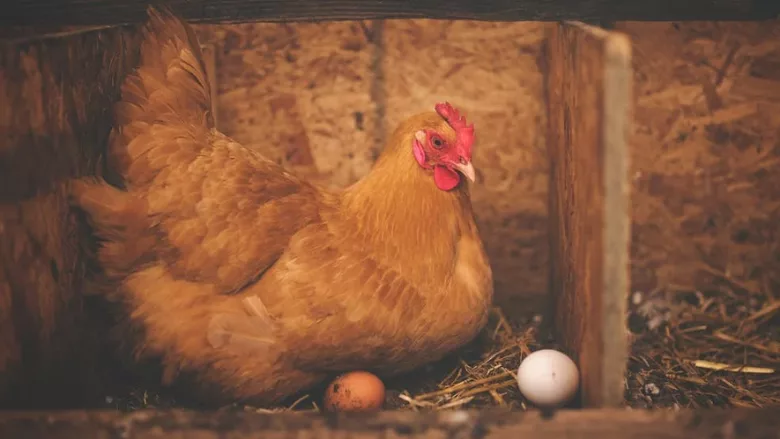U.S. Egg Farmers Firmly Committed to Food Safety

Credit: Alison Burrell via Pexels
Last year marked the beginning of the worst avian influenza outbreak to date, and the U.S. is still experiencing the chaos of this virus. The 2015 highly pathogenic avian influenza (HPAI) affected 35 million egg-laying hens; however, 2022 was far more impactful on the nation's poultry flocks, with the loss of more than 58 million birds from turkey farms, broiler farms, backyard flocks, and egg-laying farms.
To date in the ongoing outbreak, HPAI has been detected on 316 commercial farm locations, but only 30 of those are egg farms. Unfortunately, 2023 is off to a similar start, with cases already identified in Pennsylvania, Virginia, Tennessee, Mississippi, California, and Kansas.1
Even with the continuing presence of HPAI, the fact remains that the egg industry needs to produce safe, high-quality, and nutritious eggs for retail and foodservice customers and consumers across the country. Egg farmers, with the help of industry partners, have continued to develop and enhance biosecurity and safety measures that work to reduce the spread of the virus and maintain proper bird health.
Biosecurity
As we continue into this year, how will biosecurity procedures continue to play an important role, and what will that mean for food safety? First and foremost, HPAI is not transmitted to humans through properly handled and cooked eggs, and HPAI is not a risk to public health, according to the U.S. Department of Agriculture (USDA) and the Centers for Disease Control and Prevention (CDC). The 2015 outbreak was defined primarily by a lateral spread from farm to farm. If the virus was found on one farm, it was likely that nearby farms would also be impacted by the disease. In the 2022 outbreak, however, the spread is defined by an entirely different movement.
Biosecurity measures put in place following the last outbreak to prevent lateral spread seem to be working well, but about 84 percent of detections are classified as a "point source detection," with the primary reason for spread being linked to wild bird migration. New procedures that had not been previously considered have been put into place. Farms can no longer share equipment or workers, and new processes for washing before and after entering the farms have been improved.
This new outbreak has shown the important role that biosecurity must play in egg farming. United Egg Producers is evaluating additional biosecurity measures to strengthen the current parameters of the National Poultry Improvement Plan (NPIP) program and has formed an HPAI task force to ensure that farms have the strongest protocols. Biosecurity works to not only eliminate the spread of HPAI from farm to farm but also to prevent it from spreading within the farm.
The Egg Safety Rule
Looking for quick answers on food safety topics?
Try Ask FSM, our new smart AI search tool.
Ask FSM →
Disease-limiting practices apply not only to HPAI, but to other viruses as well. For example, the U.S. Food and Drug Administration (FDA) finalized the Egg Safety Rule2 in 2010, which defined specific safety components to be implemented to ensure a safe egg production process, especially as it relates to food safety.
The main purpose of this rule is to limit the spread of Salmonella Enteritidis through the contamination of eggs. Safety measures are meant to be adopted by all egg producers with 3,000 or more laying hens that do not already undergo certain treatments. These measures help ensure that egg products are safe for consumption.
The Egg Safety Rule was put into place to help prevent approximately 79,000 cases of foodborne illness and 30 deaths per year from Salmonella infections acquired through contaminated egg consumption. In addition to helping eliminate the spread of Salmonella, FDA has worked tirelessly since 2015 to put robust biosecurity protocols into place to prevent the spread of HPAI as the agency is visiting farms for food safety inspections.
Inspection Changes to Protect Flocks and Maintain Food Safety
As of April 2022, FDA considers a few factors3 before engaging in an egg farm inspection or on-farm audits. These factors include a system to determine the order in which egg farms are inspected, communicating with the state veterinarian/state animal health official before inspecting a farm to ensure there are no quarantines in place, checking the USDA's HPAI reporting website for any potential detections on farms nearby, following the necessary waiting times between inspections, using multiple teams to conduct visits, and completely washing vehicles used during inspections.
In addition to these protocols, agents that oversee these farm audits are finding and utilizing ways for audits to be conducted that prevent the spread of HPAI. Whether they are animal welfare audits, which ensure that the birds have the proper spacing and items needed for adequate bird health, or Safe Quality Food (SQF) audits, in which customers can request that eggs be SQF-certified, the goal is for these inspections to be completed efficiently and safely while protecting both flocks and the egg supply.
All of the audits are still completed, but rather than multiple people visiting the farm in a short period of time, audits are completed in a single visit to limit exposure to the birds and keep strict biosecurity procedures in place.
Looking Ahead
Moving forward, the HPAI outbreak will not only have a significant impact on egg farming, but also on food safety. The increased biosecurity on farms to prevent the spread of HPAI will also have a direct positive impact on the ability of Salmonella and other pathogens to spread on farms. Additional biosecurity measures will serve as an extra layer of security that will help prevent pathogens from entering these egg farms.
As for what the rest of 2023 will hold for HPAI, it will partially depend on the spring migration of wild birds as they return to their summering zones. It is difficult to pinpoint whether the situation will improve or worsen given the large mix of wild birds that could carry the virus, but a reassortment of the virus could occur.
Egg farmers will continue to be aggressive in their biosecurity and on-farm food safety practices as they work to produce nutritious, high-quality, and safe eggs for communities across the country.
References
- "Avian flu confirmed in Pennsylvania flocks for first cases of 2023." NorthCentralPA.com. https://www.northcentralpa.com/news/trending/avian-flu-confirmed-in-pennsylvania-flocks-for-first-cases-of-2023/article_e2568d7c-a343-11ed-89fc-d34e10c4f799.html.
- U.S. Food and Drug Administration. Egg Safety Final Rule. 2010. Current as of August 10, 2022. https://www.fda.gov/food/eggs-guidance-documents-regulatory-information/egg-safety-final-rule.
- U.S. Food and Drug Administration. "Questions and Answers Regarding the Safety of Eggs During Highly Pathogenic Avian Influenza Outbreaks." April 29, 2022. https://www.fda.gov/food/eggs-guidance-documents-regulatory-information/questions-and-answers-regarding-safety-eggs-during-highly-pathogenic-avian-influenza-outbreaks.








